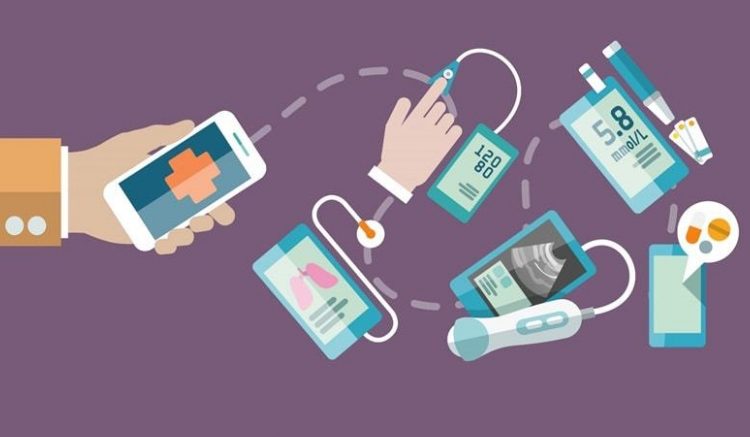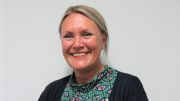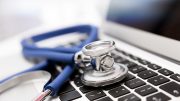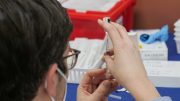Continually-evolving technology, coupled with increasing pressures on global health services and an ageing world population, are set to catalyse a rapid rise in the use of remote health monitoring.
An estimated 7.1m patients were remotely connected to health monitoring devices in 2016 [1], and it’s suggested that such technology could save the NHS more than £1bn over five years by reducing bed blocking and unnecessary appointments[2]. But how does it work in practice – and could it be put to wider use?
Remote health monitoring gives patients much greater involvement in the management of their own health, while simultaneously providing peace of mind that vital health information (which may include heart rate, blood pressure, oxygen levels and sleep quality) is being monitored by professionals elsewhere. Not only can patients be discharged earlier – as the technology can undertake the same observations as a nurse at the bedside – but unnecessary readmissions and appointments can be prevented by only recalling the patient if the real-time reporting indicates a potential decline in condition.
Today in Birmingham, remote health monitoring is set to be used alongside the latest in precision treatments. PROmics, a joint venture between the Midlands & Wales Advanced Therapy Treatment Centre (MW-ATTC) and the Centre for Patient Reported Outcomes Research (CPROR), will assess the effect of novel cell therapies on both patient symptoms and quality of life, using technology first rolled out more than 1,200 miles away.
The Norwegian capital Oslo was an early adopter of remote health monitoring. In 2010, the city council identified 250 frail elderly citizens with chronic obstructive pulmonary disease (COPD) who lived a considerable distance from their healthcare providers and were proving challenging to manage due to a variety of other health problems.
The council went out to tender, tasking technology companies with developing a remote monitoring system which would not only provide the real-time data required by the health service, but was also fully accessible to the intended user group. Within the cohort, poor eyesight and arthritis were common complaints, which alongside low digital literacy meant that usability would be a crucial factor in the project’s success.
Software company Dignio was successful in its bid for the contract, and developed a solution centered on wearable, disposable patches which take a host of vital signs recordings before transmitting them to a locked-down iPad in the patient’s home. From the tablet, data is sent to the cloud where a team of multi-disciplinary healthcare professionals are alerted to any concerning changes in the patient’s condition.
Crucial to Dignio’s success is the ‘machine learning’ built into this part of the system – the platform is intelligent enough to benchmark the patients’ own ‘normal’ and applies a red-amber-green rating which can be followed up by a practitioner. For example a nurse may call the patient to take additional details and triage the patient, they may receive a reminder to take particular medication which may bring them back into normal range, or the relevant urgent action may be taken.
Dignio’s software is now in use across 141 Norwegian states, as well as more widely across Scandinavia and the Baltic states. In addition, the company has won a £10m contract in China and due to its rapid growth, was encouraged by the Norwegian government to explore opportunities in Britain.
It began scouting for a UK base in 2017, visiting 20 science parks across the country who pitched their benefits to Dignio. The final visit was to University of Birmingham Enterprise, which runs a specialist business incubator (the BizzInn) that assists hi-tech companies to address markets that are complex, fast-moving or difficult to enter.
At the heart of the Birmingham Health Partners (BHP) campus, BizzInn business incubator is home to mentors, advisors and industry specialists with substantial experience in product development. The team arranged a BHP tour for Dignio – including facilities at members the University of Birmingham, the Queen Elizabeth Hospital, and Birmingham Women’s Hospital – and at the end asked the pivotal question: “What do we need to do to make you more successful?” Birmingham was the only location to place the emphasis firmly on Dignio’s commercial success, and the board took the decision to locate here on the journey back to the airport.
Birmingham was also highly attractive to Dignio due to a significant concentration of SME medical device companies in the city. As a software developer, Dignio buys in all the hardware it need to create bespoke solutions, and is ‘device agnostic’, requiring only that products it uses are approved, compatible and accurate – giving them a wealth of opportunities in Birmingham.
Dignio CEO Ken Garner is a firm believer that networking de-risks market entry – and so took full advantage of opportunities made possible by the incubation team at the BizzInn. It was through this networking that Ken met Professor Melanie Calvert, Director of CPROR. The centre was preparing a bid for funding for the PROmics trial, and felt constrained by the fact that paperwork from clinical trials is usually a month out of date, while the cell therapies they were due to investigate require real-time monitoring. This was precisely the service Dignio can provide, and was a pivotal factor in securing financial backing for PROmics.
Ken explained: “Genomics and cell-based therapies are so cutting-edge that the majority are being tested in humans for the very first time. Because of this, incredibly close monitoring patients is crucial and the remote system we are finalising will provide the clinical trials team with millisecond-data. In the unlikely event of a patient’s symptoms becoming exacerbated, the care team can step in quickly – perhaps before the patient feels any different.
“The CPROR team have been invaluable to us in how to evolve our existing solution for clinical trials use thanks to their intimate knowledge of the trials process, and the BizzInn’s support in terms of making the right connections across the BHP ecosystem has been instrumental. We have also been fortunate enough to work with MD-TEC, the Medical Device Testing and Evaluation Centre, on clinical trials scoping. We simply would not have found this level of expertise and generous support in one location anywhere else in the UK.”
A year after beginning work with BHP, Ken is optimistic about the company’s future in Birmingham: “We are ready to begin recruiting locally for a number of key roles, including project management and software development, and will continue to work with other regional life sciences companies as we establish ourselves permanently in the Midlands.
“We see many other opportunities for remote monitoring, for example establishing the home-based nursing care for elderly people who do not yet need the full spectrum of support offered by residential care, or in monitoring athletes for performance and safety analysis. The system is also used to monitor the link between physiological patterns and mental health issues such as anxiety – showing how far the system has come since its development as a tool to manage COPD patients in Oslo.”
[1] https://www.beckershospitalreview.com/healthcare-information-technology/7-1m-patients-use-remote-monitoring-devices-says-berg-insight-report.html
[2] http://www.imeche.org/news/news-article/roll-out-of-mobile-and-digital-health-technology-could-save-nhs-billions





